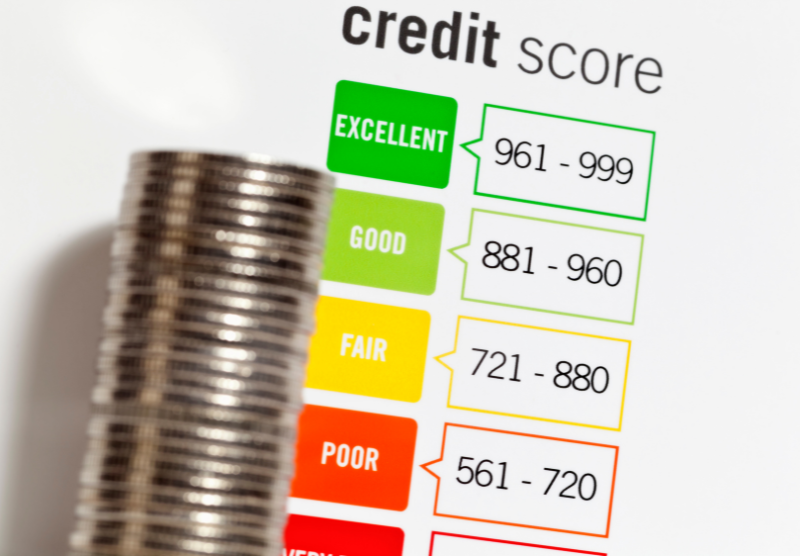
A credit score is a very important term in our daily life in Canada. Whether you want to apply for a higher credit limit on your credit card from a bank or want to have a low mortgage interest rate, you’ll need a good credit score. Nothing will raise your credit score faster or more effectively than paying bills on time and using your credit property. In Canada, there are two main credit reporting agencies: Equifax and TransUnion, which help you to check your credit score based on public records and information from lenders like banks, collection agencies, and credit card companies. In this article, we will discuss credit scores and some tips on how to improve your credit score.
What is a credit score?
A credit score is a numeric summary of your credit history. It is used by lenders to predict how likely you are to repay any loans made to you, or in other words to determine the risk involved in lending money to you. It may also be checked when applying to rent a property or for a background check at a job. The credit score ranges from 300 to 900. The higher your score, the better your credit rating. According to Equifax, a good credit score is between 660 to 724. If your credit score is between 725 to 759, it’s likely to be considered very good and if your credit score is above 760, you have excellent credit.
What is included in your credit score? There are five major components below that produce your credit score.
Payment history typically determines if you make payments on time and if you pay the full balance.
Amounts owed being the second highest segment looks at how much of your available credit that you’ve used. If you exceed the limit that you are given, then you are seen as high risk and penalized. If you use less than 30% of the credit limit, you are considered a safe borrower and get a positive rating.
When looking at the length of credit, this determines how long you keep an account active. The longer you keep an account, the better it is in the eyes of the scorekeepers.
Credit Mix looks at what loans you have to see if there is a healthy mix. Credit Cards, Mortgages, and Auto Loans can be seen as a good credit mix so long as you are making payments on time.
For the smallest segment, we look at new credit. While it is fine to open a new account, if you are applying for several accounts in a short period, then you may have a risk. Your score will reflect that.
How do banks use credit to assess you for a mortgage loan?
Not all banks are equal, but most of them use the same criteria to assess you for a mortgage loan. Banks usually underwrite loans on a variety of criteria including your salary, assets, savings, and a borrower’s creditworthiness. If a borrower wants to buy a house, the bank will ask for proof of deposit. This is because they need to confirm that the funds required to purchase the house have been deposited in a bank account and are accessible to the lender. An alternative lender can help with unique scenarios such as poor credit, and self-employment to get your mortgage request approved.
How to build your credit
Building credit can be challenging, but it’s essential because you need to have credit to get a loan, a credit card, an apartment or even a job. Therefore, understanding how to build your credit history is very critical.
Apply for a secured credit card
Applying for a secured card and making your monthly payments on time is an excellent way to build credit. You can build your credit by making on-time monthly payments on secured cards.
Now that we know how important it is to build a good credit score. Here are three tips for you to help you to improve your credit score.
3 tips to help you to successfully improve your credit score
Checking your credit regularly is a very important step that you can take to find out if you have any issues with your credit. Using your bank app or an app like borrowell.com can help to do a soft pull on your credit. Beware of how often you request a hard pull of your credit through Equifax as this can impact your score.
Marking your payment deadlines in your calendar is very important to help keep track of payment dates to avoid penalties.
If you can afford it, you can choose to pay down your bills twice a month rather than once a month. This lowers your credit utilization and improves your score.
Overall, it is good practice to keep good credit, however sometimes bad things happen to good people. That’s where alternative lenders come in to help. They can use factors like the value of your real estate to lend money when the banks have turned down your request because of bruised credit. Remember not to get discouraged! So long as you can make payment on time with your alternative lender, you can use this to correct your credit.